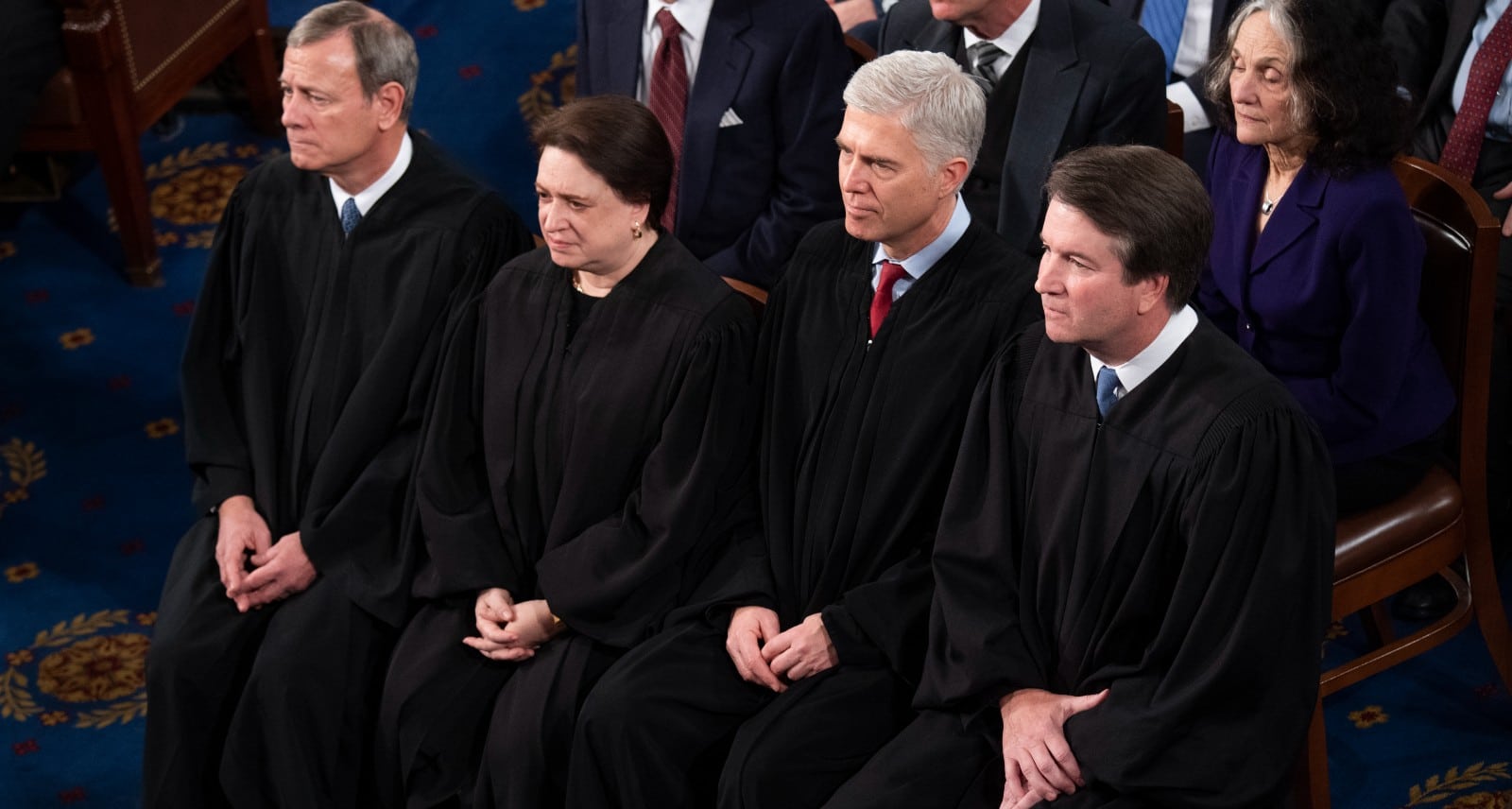OPINION: This article may contain commentary which reflects the author's opinion.
The U.S. Supreme Court stunned conservatives this week when justices ruled 7-2 to uphold the funding mechanism for a controversial federal financial regulatory agency.
The high court rejected arguments that using the Federal Reserve System for funding the Consumer Financial Protection Bureau unlawfully bypassed Congress’ power of the purse.
“We conclude that appropriations need only identify a source of public funds and authorize the expenditure of those funds for designated purposes to satisfy the Appropriations Clause,” conservative Justice Clarence Thomas wrote for the majority.
Two lender trade associations challenged the independent agency, which was established in 2011 following the passage of the Dodd-Frank Wall Street Reform and Consumer Protection Act of 2010 in the wake of the Great Recession, the New York Post reported.
Lawmakers designed the funding structure to shield the CFPB from political pressure during the annual appropriations process in Congress. However, conservatives argued that allowing the CFPB to receive up to $600 million a year from the Fed made the agency unconstitutionally unaccountable to Americans’ elected representatives.
Had the payday lenders succeeded, the court could have invalidated every action the agency had taken since its inception, The Post noted.
The lending groups first challenged the CFPB in 2017 regarding a rule that restricted illegal debits from bank accounts. The conservative Fifth Circuit Court of Appeals had previously sided with the payday lenders. The two justices who dissented were Samuel Alito and Neil Gorsuch.
“Unfortunately, today’s decision turns the Appropriations Clause into a minor vestige,” Alito argued. “The Court upholds a novel statutory scheme under which the powerful Consumer Financial Protection Bureau (CFPB) may bankroll its own agenda without any congressional control or oversight.”
During his term, then-President Donald Trump repeatedly attempted to undermine the CFPB’s power and functions, but President Joe Biden has sought to strengthen the agency.
“CFPB has worked to protect consumers from abusive practices by lenders, servicers, and special interests, and has lowered costs for hardworking families by going after junk fees,” Biden said, according to a statement issued by the White House. “Republicans in Congress and in states across the country have stood with special interests who want to keep ripping families off.”
More than 130 GOP lawmakers, as well as House Speaker John Boehner (R-Ohio), supported the lenders, noting the Constitution’s Appropriations Clause states that “[n]o money shall be withdrawn from the Treasury, but in Consequence of Appropriations made by Law.”
However, the majority found that based on the “Constitution’s text, the history against which that text was enacted, and congressional practice immediately following ratification,” CFPB’s funding structure was permissible.
In 2020, the court ruled 5-4 that the leadership structure of the CFPB was unconstitutional but stopped short of abolishing the agency outright.
Also this week, the high court overturned a lower court’s ruling that had allowed a Florida woman to sue a Maine hotel for failing to disclose accessible features on its reservation website. The woman did not intend to make a reservation at the hotel in question.
Deborah Laufer is visually impaired and uses a wheelchair; the justices unanimously reversed the lower court’s decision to revive her lawsuit against Acheson Hotels LLC. The justices found the case to be moot, so they dismissed it.
Laufer, who described herself as a “tester” of hotels’ ADA compliance, asserted that the corporation was in breach of a federal regulation mandating the inclusion of accessibility information in reservation systems, as per the Americans with Disabilities Act, a seminal civil rights statute passed in 1990, Reuters reported.
Some conservative and liberal justices appeared doubtful that Laufer had standing to sue during the case’s oral arguments in October, the report added.
